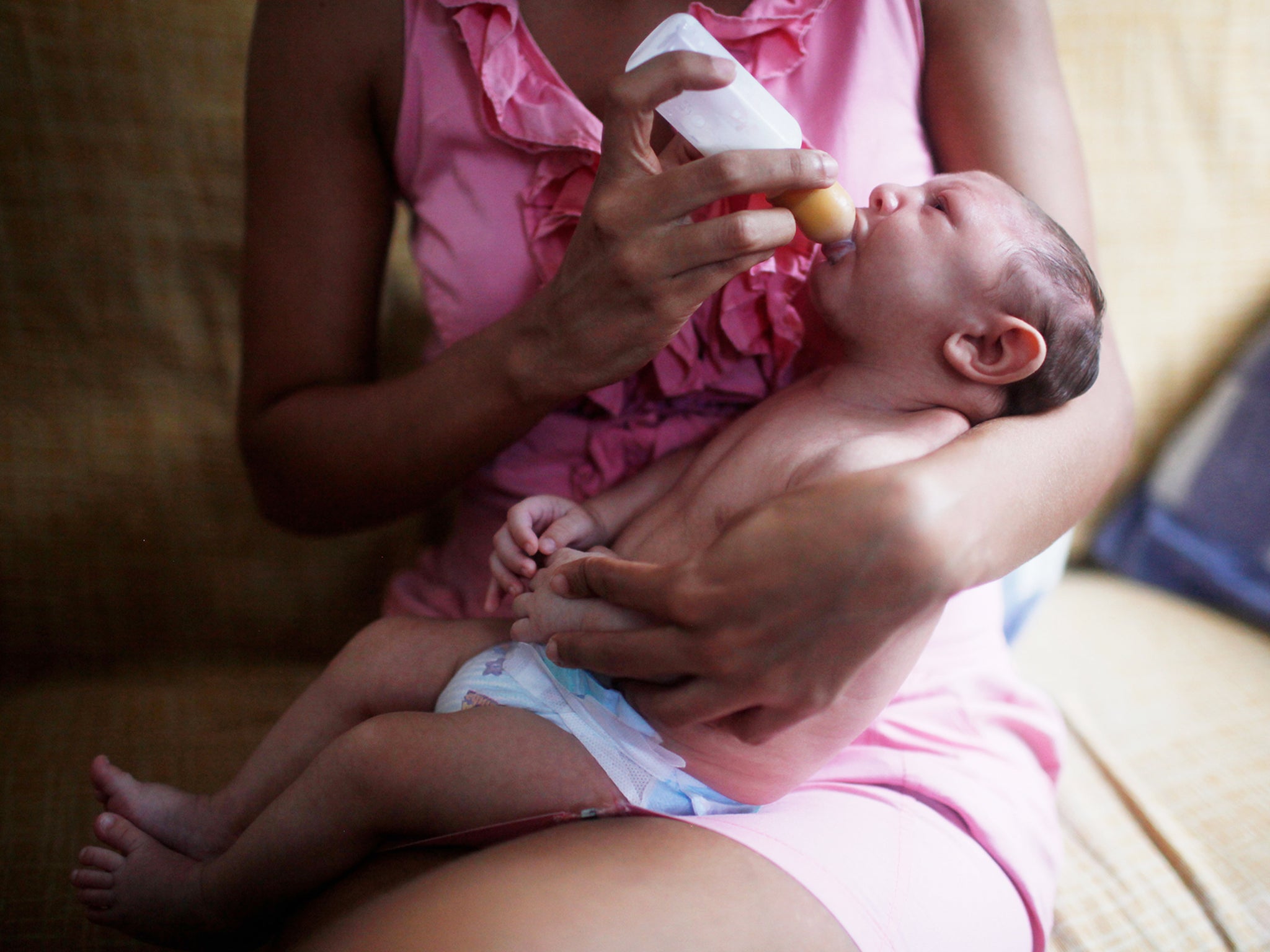Zika strain that causes microcephaly found in Africa for the first time, WHO confirms
Expert warns an outbreak of the Asian Zika virus in Africa could be 'a bigger disaster than in South America'

Your support helps us to tell the story
From reproductive rights to climate change to Big Tech, The Independent is on the ground when the story is developing. Whether it's investigating the financials of Elon Musk's pro-Trump PAC or producing our latest documentary, 'The A Word', which shines a light on the American women fighting for reproductive rights, we know how important it is to parse out the facts from the messaging.
At such a critical moment in US history, we need reporters on the ground. Your donation allows us to keep sending journalists to speak to both sides of the story.
The Independent is trusted by Americans across the entire political spectrum. And unlike many other quality news outlets, we choose not to lock Americans out of our reporting and analysis with paywalls. We believe quality journalism should be available to everyone, paid for by those who can afford it.
Your support makes all the difference.Two hundred cases of the Zika virus have been confirmed and thousands are suspected in Cape Verde in the first African outbreak of the strain of the disease that has hit South America, the World Health Organisation has revealed.
Three cases of babies with microcephaly – an unusually small head associated with incomplete brain development – have already been discovered on the island off Senegal on Africa’s west coast with 170 pregnant women among those infected.
A WHO spokesman said more than 7,500 people were suspected of having the Asian strain of the disease, but the diagnosis had yet to be confirmed.
There is an African strain of the Zika virus but it is feared that this will not confer immunity from the Asian version.
Dr Matshidiso Moeti, WHO’s regional director for Africa, said: “The findings are of concern because it is further proof that the outbreak is spreading beyond South America and is on the doorstep of Africa.
“This information will help African countries to re-evaluate their level of risk and adapt and increase their levels of preparedness.”
In a statement, the WHO confirmed this was “first time that the Zika strain responsible for the outbreaks linked to neurological disorders and microcephaly has been detected in Africa”.
The global health body advised countries in the area to raise awareness of the disease, particularly among pregnant women and “promote protection steps to avoid mosquito bites as well as sexual transmission”.
“In addition, countries should increase their surveillance for Zika transmission and congenital malformations, such as microcephaly, as well as Guillain-Barré syndrome,” the statement said.
Professor Paul Hunter, an expert in health protection at the University of East Anglia, told The Independent that the disease would "almost certainly" now spread to continental Africa in what he predicted could become a major disaster.
"Once it has got a toe-hold in Africa, it is likely to spread pretty dramatically," he said.
"It's potentially going to be even a bigger disaster than in South America.
"I'm pretty sure the WHO are taking it very seriously."
While there might be little risk to people in dry places like Niger and Chad, Professor Hunter said the inhabitants of countries with wet climates where mosquitoes flourish, such as the Democratic Republic of Congo, Uganda, Tanzania, Kenya, Zimbabwe and "even South Africa", could all be affected.
He said the African strain of Zika might also cause microcephaly but because people tend to catch it as children, women tend to be immune when they became pregnant.
Professor Hunter said that the African strain might confer some immunity against the Asian version, but might also make things worse.
For example, catching one version of dengue fever gives immunity to a different strain for about 10 to 15 years, he said, but those infected after that period experience a more severe illness.
Only on Wednesday, the WHO warned that the virus could come to Europe.
Its regional director for Europe, Zsuzsanna Jakab, said: “There is a risk of spread of Zika virus disease in the European Region and ... this risk varies from country to country.
"We call particularly on countries at higher risk to strengthen their national capacities and prioritize the activities that will prevent a large Zika outbreak."
In Europe, the areas where Aedes mosquitoes thrive, in particular on the island of Madeira and the north-eastern coast of the Black Seam, are believed to be most at risk.
Join our commenting forum
Join thought-provoking conversations, follow other Independent readers and see their replies
Comments